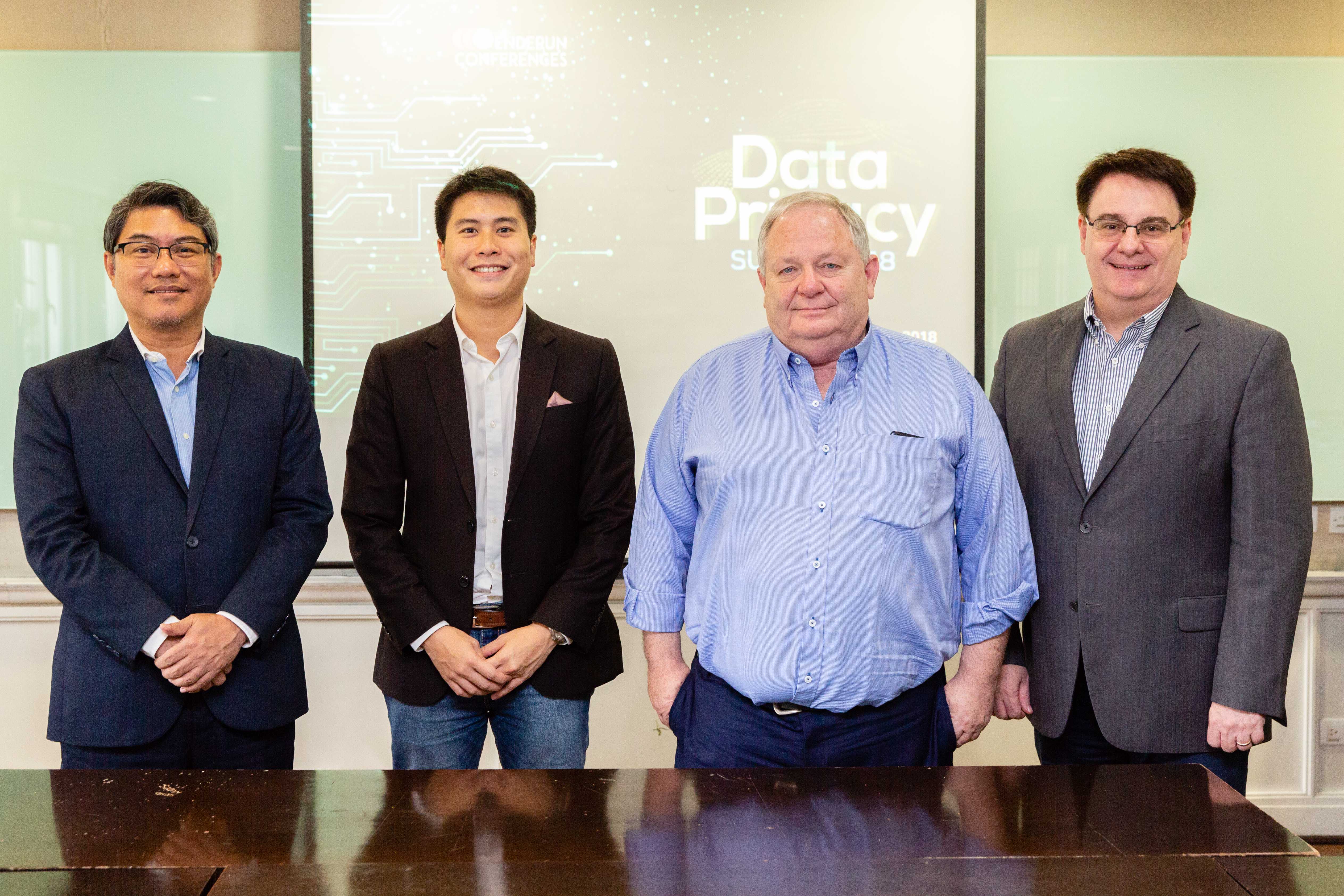Amidst the wave of data protection laws implemented locally and globally, a compliance challenge remains especially for firms unable to find a qualified data protection officer (DPO). This is according to former deputy commissioner and DPO of the National Privacy Commission, Dondi Mapa.
Mapa, who is scheduled to speak and moderate in the upcoming Data Privacy Summit 2018: The Hands On of Data Protection Compliance, is now helping businesses and organizations pave the road to compliance by pooling insights from the country’s ‘hands on’ data protection officers.

Data Privacy Summit 2018 Partners, from left to right: Dondi Mapa, former deputy commissioner and DPO of National Privacy Commission; Daniel Perez, Co-Founder and Senior Vice-President at Enderun; Paul Bograd, Chairman of Evident Communications; and Colin Christie, Director of Digital Transformation, Enderun Colleges
The Summit scheduled for August 24th at Enderun College in Taguig will take participants through the tangible, “hands on” steps of compliance with Philippine Data Privacy Laws and regulations.
In the Philippines any organization that handles personal data is required to appoint a Data Protection Officer (DPO), conduct a privacy impact assessment, implement a privacy management system, deploy data protection policies, and exercise breach reporting procedures. Not doing so can mean heavy fines, loss of revenue, loss of reputation, and even imprisonment.
“Often, the biggest challenge for firms is finding a qualified DPO. The International Association of Privacy Professionals (IAPP) estimated that we’ll need about 75,000 DPOs globally just right after GDPR took effect,” explains Mapa.
“On top of that, it is crucial for companies to arm their DPOs with progressive training and the right technologies. If they get this right, the competitiveness of their companies increases significantly, and they have better chances attracting customers and increasing their revenues. In today’s data-driven economy, privacy has become the proxy for trust.”
Making data privacy a competitive edge
The government’s focus on enforcing data privacy compliance can enhance the Philippines’ reputation as a major artery and processor of corporate and personal information.
“The Philippines processes a massive amount of data because of the many BPOs, global in-house centers, and technology companies servicing almost every continent, including countries covered by the General Data Protection Regulation (GDPR). Complying with the Data Privacy Act of 2012 is signal to other countries that they can trust us with their data; that they will receive adequate protection similar to what they are receiving in their home countries” says Mapa.
He adds, “It was relatively straightforward for multinationals who have complied with GDPR to comply with the DPA, but there are a good number of local firms that have not started the compliance process yet. Even at the NPC, we had to ensure that we ourselves were compliant, and this was my duty when NPC Chairman Raymund Enriquez Liboro appointed me as the NPC’s first Data Protection Officer.”
The Hands On of Compliance
In August 24, Mapa, with partners Enderun Extension and Evident Communications is mounting the Data Privacy Summit 2018: The Hands On of Data Protection Compliance as a response to market clamor and a sudden demand for data protection professionals, especially now that landmark privacy laws have been enacted across the globe.
It is meant to bring first degree advisory, analyses, and insights by seasoned data privacy professionals who have designed laws, overseen rules and regulations, and implemented compliance locally, regionally, and internationally. It is a summit “for DPOs, by DPOs”. Speakers will come from data-intensive sectors such as education, health care, and business process outsourcing.
The Summit runs for one day and covers all aspects of the compliance journey and some breach drills: road-mapping and vulnerability assessment, as well as the people, processes, and technologies that are considered key success factors for every company that is still building its data protection policy.
To get updates or register, visit the Enderun Conferences website or call 856-5000 loc. 580.
ADVT

